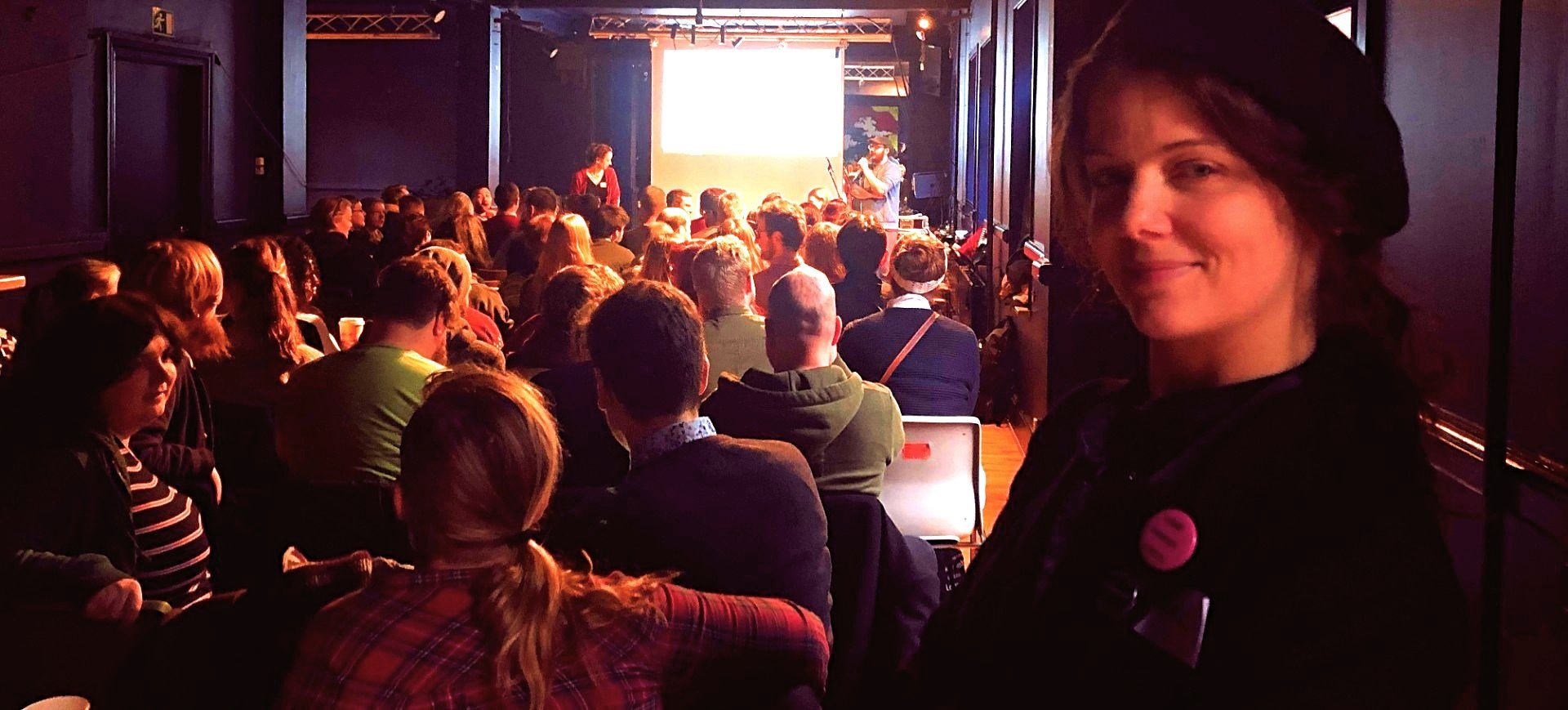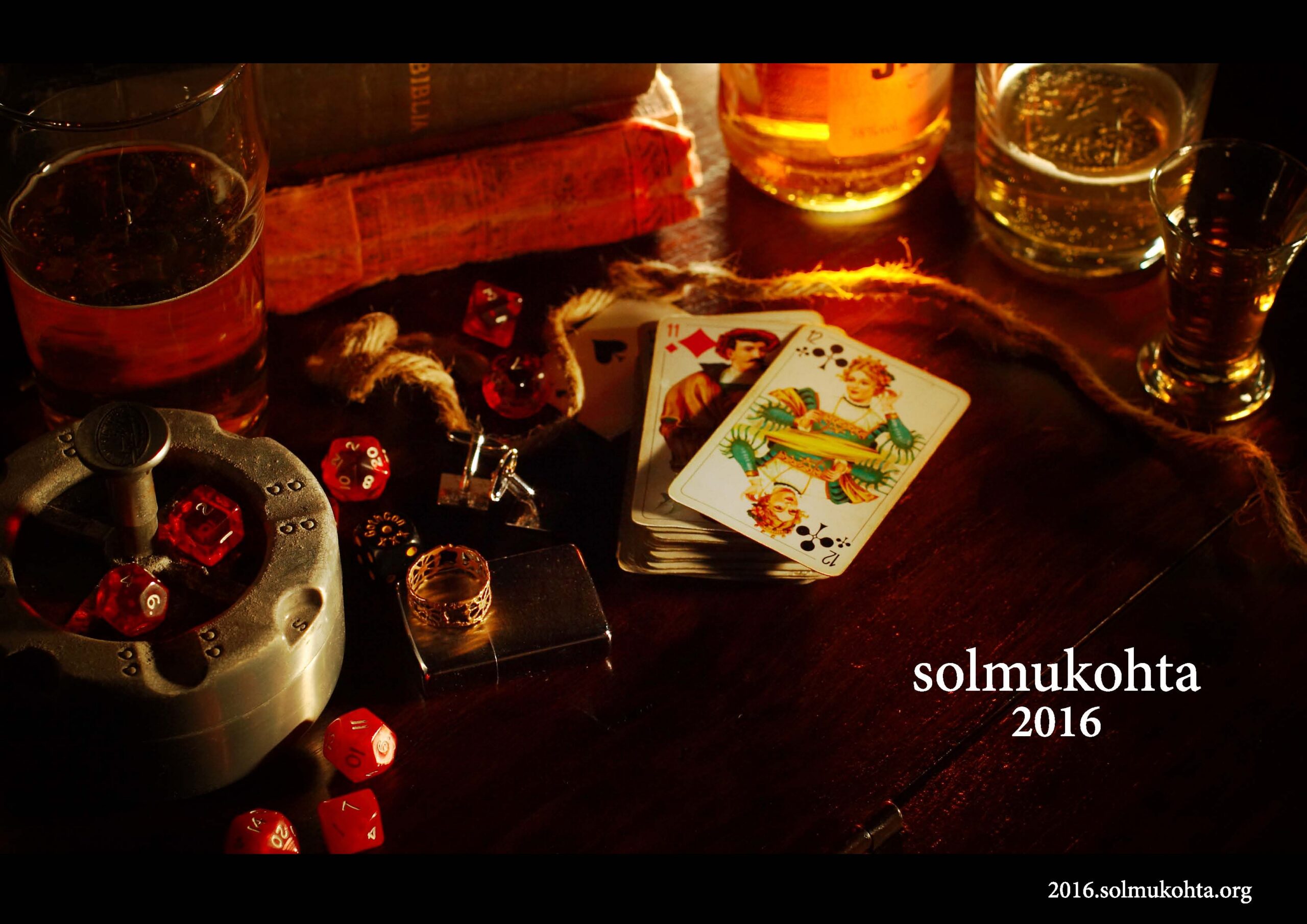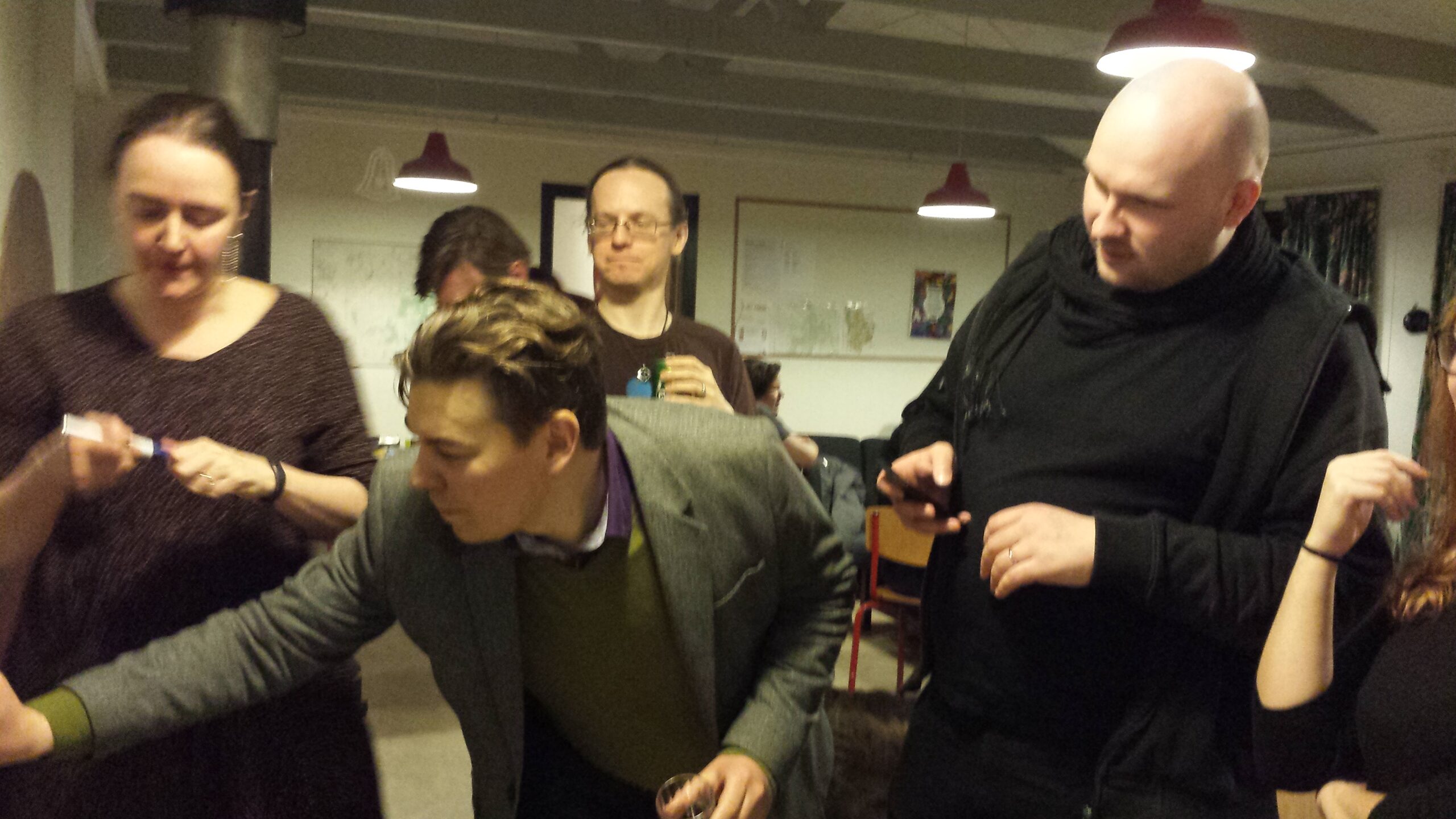Tag: Conference
-

Overview of Edu-Larp Conference 2019
Edu-larp can be described as implementing live-action role-playing games in formal or informal educational contexts, “used to impart pre-determined pedagogical or didactic content” (Balzer & Kurz 2015). The aim of the Edu-larp Conference 2019 was to present and discuss recent international research as well as share best practice examples or innovative formats of edu-larp.The first
-

Ship Ahoy! Mark your calendar for Solmukohta 2016!
in
On Wednesday the 9th to Monday the 14th of March 2016 it’s once again time for the international roleplaying conference Solmukohta. The conference often known as Knutepunkt is this year in Finland and therefore goes by it’s Finnish name Solmukohta for 2016. This Solmukohta will be truly Baltic as the location is a Tallink Silja cruise
-

Larp Writers Summer Retreat 2014
in
Swedish larp organizer group Berättelsefrämjandet will run a retreat for larp writers in early June: We want to gather creators, critics and scholars of larp for an extended weekend of gaining insight and inspiration to create better larps. We will discuss, reflect on and produce larp ideas in an organized manner. The retreat starts Thursday
-

Living Games Conference Crowdfunding
in
The first ever academic larp conference in the US has launched a crowdfunding campaign to help finance the event. It lets people who can’t attend but want to support them do so. Read more and contribute at the campaign website: http://www.indiegogo.com/projects/living-games-conference
-

Living Games Conference 2014
in
The Living Games Conference is the first academic conference on larp in the US. The program and academic committees is a veritable who’s who of Nordic and US larp academia. It looks to be a very qualitative and interesting conference. This is what the organizer have to say about the event: The Living Games Conference is a live-action
-

Prolarp 2013 – “Solving Problems” – Sign-up open!
in
We’ve written earlier about Prolarp, the proposed conference for larp professionals organized by Danish larp company Rollespilsakademiet. Now you can sign up for the worlds first conference for larp professionals on their website: http://rollespilsakademiet.wix.com/prolarp-2013